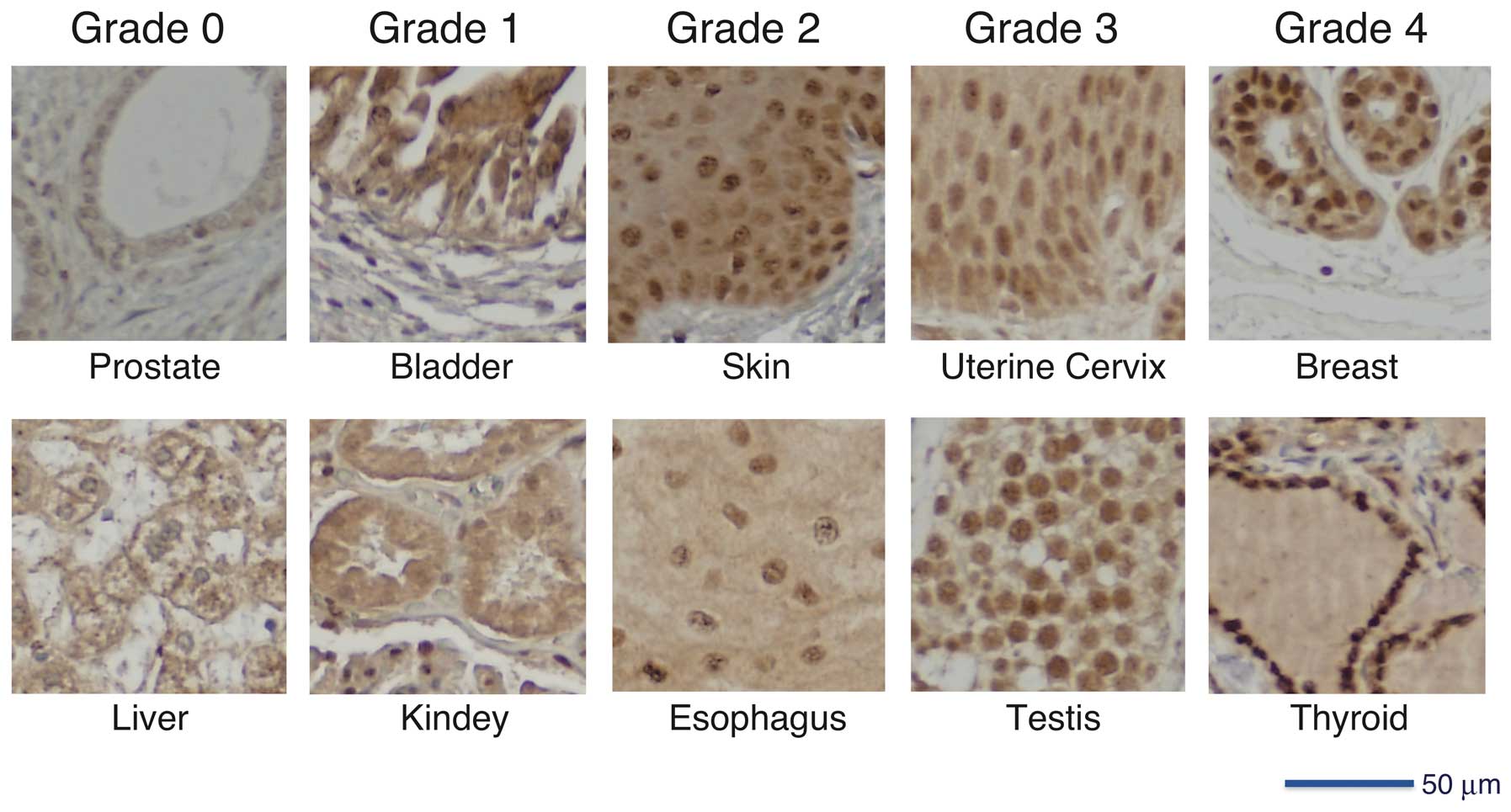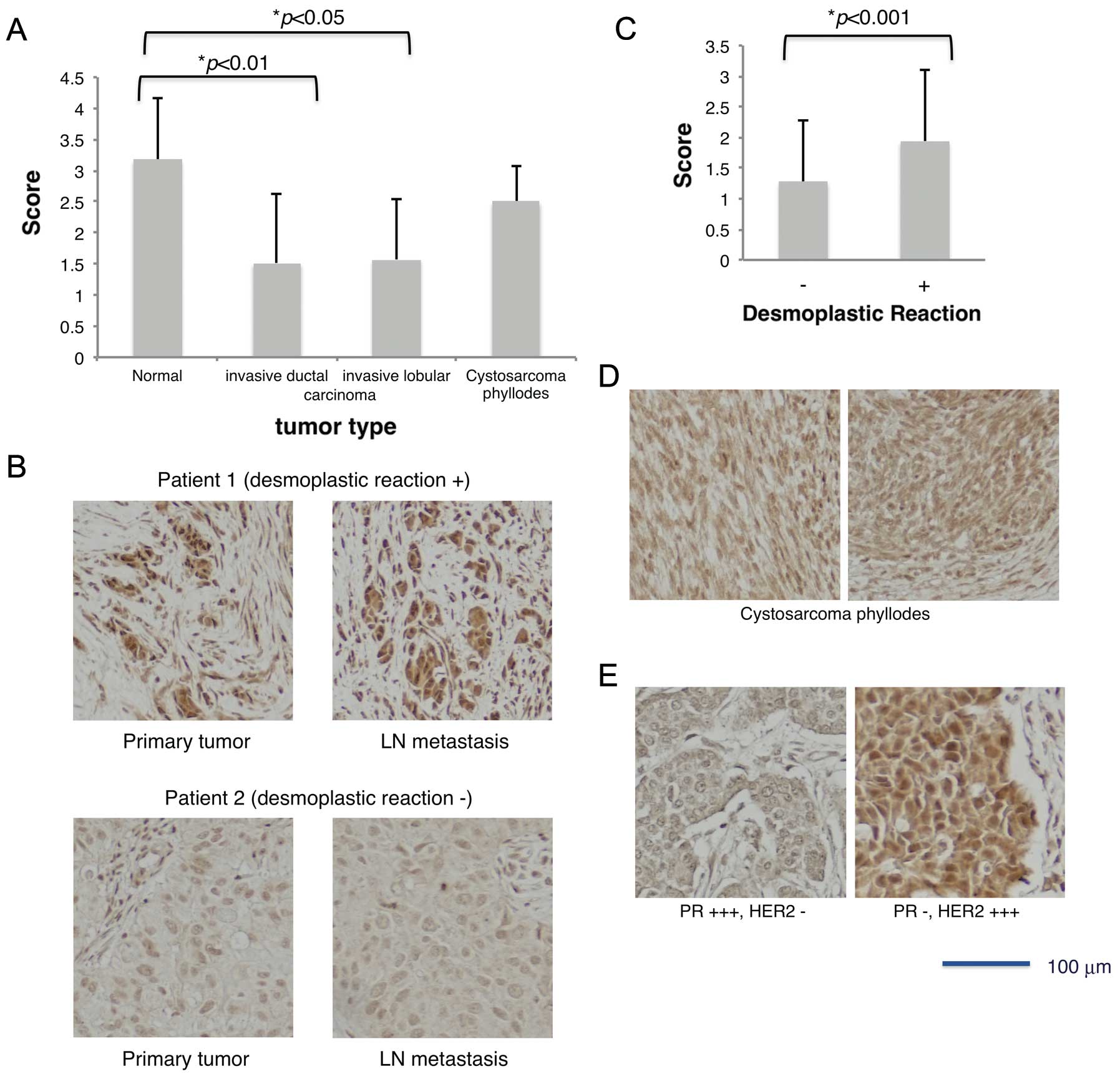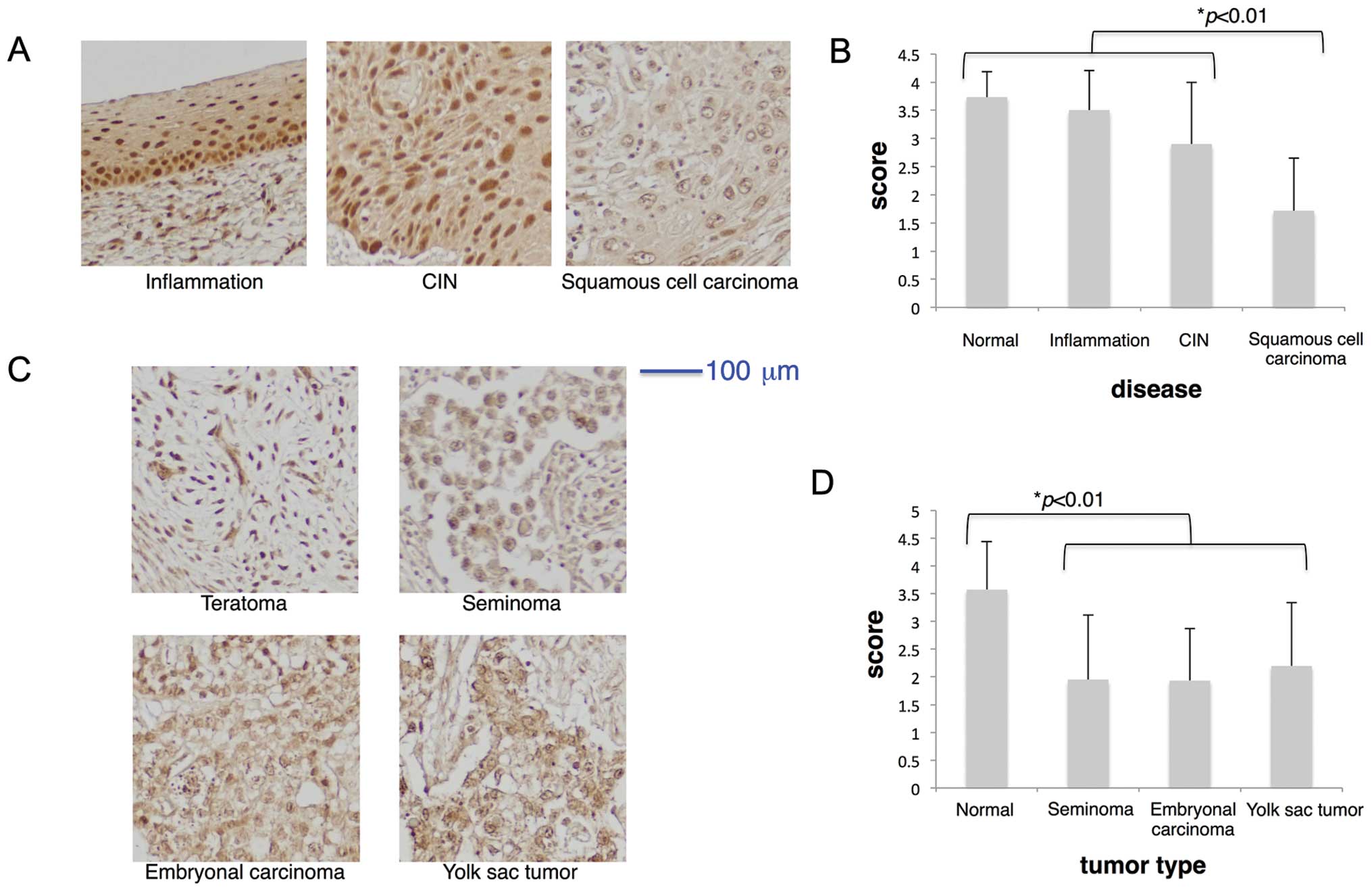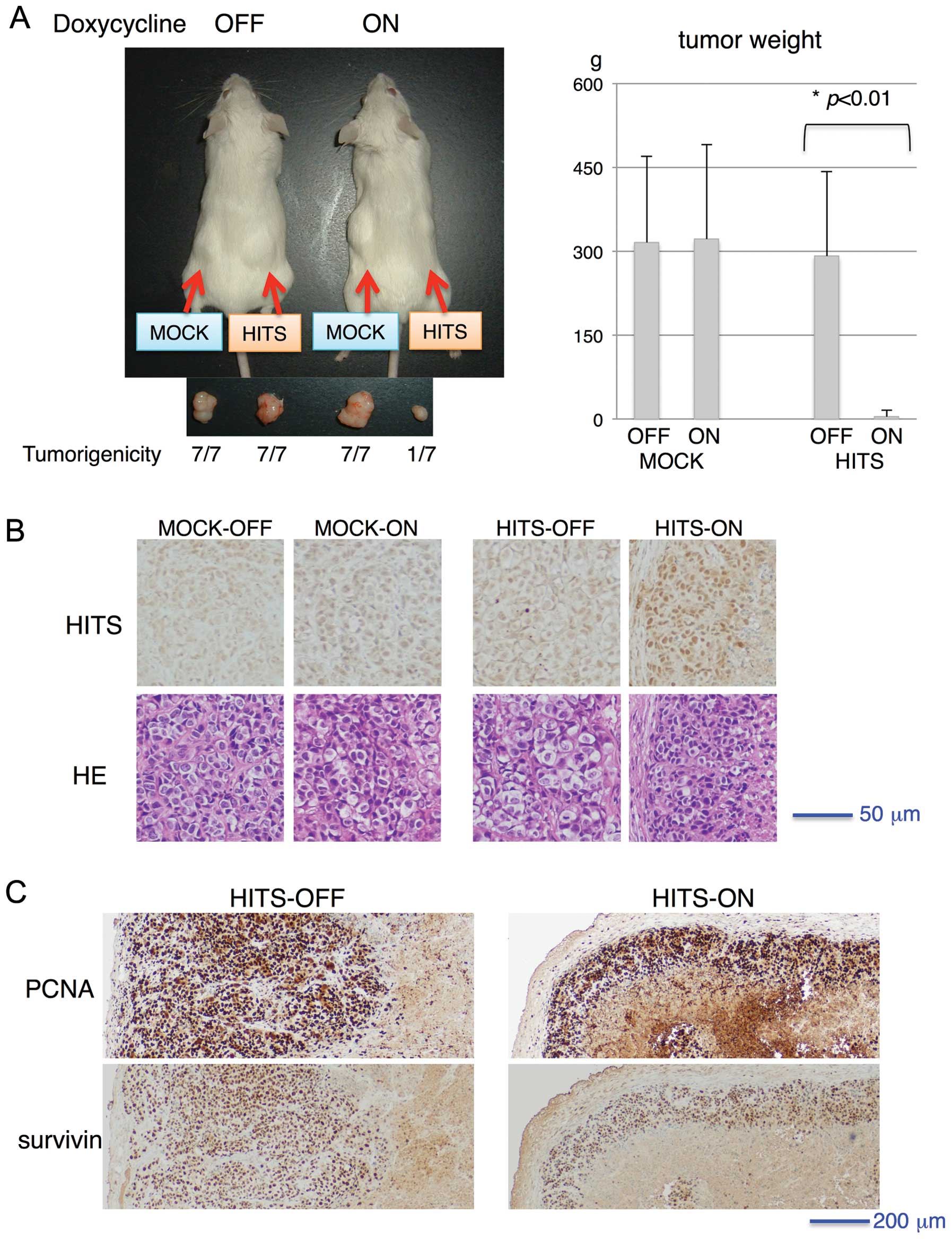|
1
|
Rual JF, Venkatesan K, Hao T, et al:
Towards a proteome-scale map of the human protein-protein
interaction network. Nature. 437:1173–1178. 2005. View Article : Google Scholar : PubMed/NCBI
|
|
2
|
Ewing RM, Chu P, Elisma F, et al:
Large-scale mapping of human protein-protein interactions by mass
spectrometry. Mol Syst Biol. 3:892007. View Article : Google Scholar : PubMed/NCBI
|
|
3
|
Stelzl U, Worm U, Lalowski M, et al: A
human protein-protein interaction network: a resource for
annotating the proteome. Cell. 122:957–968. 2005.PubMed/NCBI
|
|
4
|
Wang YL, Faiola F, Xu M, Pan S and
Martinez E: Human ATAC Is a GCN5/PCAF-containing acetylase complex
with a novel NC2-like histone fold module that interacts with the
TATA-binding protein. J Biol Chem. 283:33808–33815. 2008.
View Article : Google Scholar : PubMed/NCBI
|
|
5
|
Frijters R, Fleuren W, Toonen EJ, et al:
Prednisolone-induced differential gene expression in mouse liver
carrying wild type or a dimerization-defective glucocorticoid
receptor. BMC Genomics. 11:3592010. View Article : Google Scholar : PubMed/NCBI
|
|
6
|
Yamato T, Orikasa K, Fukushige S, Orikasa
S and Horii A: Isolation and characterization of the novel gene,
TU3A, in a commonly deleted region on 3p14.3-->p14.2 in renal
cell carcinoma. Cytogenet Cell Genet. 87:291–295. 1999.PubMed/NCBI
|
|
7
|
Wang L, Darling J, Zhang JS, et al: Loss
of expression of the DRR 1 gene at chromosomal segment 3p21.1 in
renal cell carcinoma. Genes Chromosomes Cancer. 27:1–10. 2000.
View Article : Google Scholar : PubMed/NCBI
|
|
8
|
van den Boom J, Wolter M, Blaschke B,
Knobbe CB and Reifenberger G: Identification of novel genes
associated with astrocytoma progression using suppression
subtractive hybridization and real-time reverse
transcription-polymerase chain reaction. Int J Cancer.
119:2330–2338. 2006.
|
|
9
|
Vanaja DK, Ballman KV, Morlan BW, et al:
PDLIM4 repression by hypermethylation as a potential biomarker for
prostate cancer. Clin Cancer Res. 12:1128–1136. 2006. View Article : Google Scholar : PubMed/NCBI
|
|
10
|
Liu Q, Zhao XY, Bai RZ, et al: Induction
of tumor inhibition and apoptosis by a candidate tumor suppressor
gene DRR1 on 3p21.1. Oncol Rep. 22:1069–1075. 2009.PubMed/NCBI
|
|
11
|
Kholodnyuk ID, Kozireva S, Kost-Alimova M,
Kashuba V, Klein G and Imreh S: Down regulation of 3p genes, LTF,
SLC38A3 and DRR1, upon growth of human chromosome 3-mouse
fibrosarcoma hybrids in severe combined immunodeficiency mice. Int
J Cancer. 119:99–107. 2006. View Article : Google Scholar : PubMed/NCBI
|
|
12
|
Zhao XY, Liang SF, Yao SH, et al:
Identification and preliminary function study of Xenopus
laevis DRR1 gene. Biochem Biophys Res Commun. 361:74–78. 2007.
View Article : Google Scholar : PubMed/NCBI
|
|
13
|
Asano Y, Kishida S, Mu P, Sakamoto K,
Murohara T and Kadomatsu K: DRR1 is expressed in the developing
nervous system and downregulated during neuroblastoma
carcinogenesis. Biochem Biophys Res Commun. 394:829–835. 2010.
View Article : Google Scholar : PubMed/NCBI
|
|
14
|
Le PU, Angers-Loustau A, de Oliveira RMW,
et al: DRR drives brain cancer invasion by regulating
cytoskeletal-focal adhesion dynamics. Oncogene. 29:4636–4647. 2010.
View Article : Google Scholar : PubMed/NCBI
|
|
15
|
Schmidt MV, Schulke JP, Liebl C, et al:
Tumor suppressor down-regulated in renal cell carcinoma 1 (DRR1) is
a stress-induced actin bundling factor that modulates synaptic
efficacy and cognition. Proc Natl Acad Sci USA. 108:17213–17218.
2011. View Article : Google Scholar : PubMed/NCBI
|
|
16
|
Nakajima H, Ishigaki Y, Xia QS, et al:
Induction of HITS, a newly identified family with sequence
similarity 107 protein (FAM107B), in cancer cells by heat shock
stimulation. Int J Oncol. 37:583–593. 2010. View Article : Google Scholar : PubMed/NCBI
|
|
17
|
Jameel A, Skilton RA, Campbell TA, Chander
SK, Coombes RC and Luqmani YA: Clinical and biological significance
of HSP89 alpha in human breast cancer. Int J Cancer. 50:409–415.
1992. View Article : Google Scholar : PubMed/NCBI
|
|
18
|
Takayama S, Reed JC and Homma S:
Heat-shock proteins as regulators of apoptosis. Oncogene.
22:9041–9047. 2003. View Article : Google Scholar : PubMed/NCBI
|
|
19
|
Foster CS, Dodson AR, Ambroisine L, et al:
Hsp-27 expression at diagnosis predicts poor clinical outcome in
prostate cancer independent of ETS-gene rearrangement. Br J Cancer.
101:1137–1144. 2009. View Article : Google Scholar : PubMed/NCBI
|
|
20
|
Ciocca DR, Clark GM, Tandon AK, Fuqua SA,
Welch WJ and McGuire WL: Heat shock protein hsp70 in patients with
axillary lymph node-negative breast cancer: prognostic
implications. J Natl Cancer Inst. 85:570–574. 1993. View Article : Google Scholar : PubMed/NCBI
|
|
21
|
Nanbu K, Konishi I, Mandai M, et al:
Prognostic significance of heat shock proteins HSP70 and HSP90 in
endometrial carcinomas. Cancer Detect Prev. 22:549–555. 1998.
View Article : Google Scholar : PubMed/NCBI
|
|
22
|
Jolly C and Morimoto RI: Role of the heat
shock response and molecular chaperones in oncogenesis and cell
death. J Natl Cancer Inst. 92:1564–1572. 2000. View Article : Google Scholar : PubMed/NCBI
|
|
23
|
Rohde M, Daugaard M, Jensen MH, Helin K,
Nylandsted J and Jaattela M: Members of the heat-shock protein 70
family promote cancer cell growth by distinct mechanisms. Genes
Dev. 19:570–582. 2005. View Article : Google Scholar : PubMed/NCBI
|
|
24
|
Whitesell L and Lindquist SL: HSP90 and
the chaperoning of cancer. Nat Rev Cancer. 5:761–772. 2005.
View Article : Google Scholar : PubMed/NCBI
|
|
25
|
Mai W, Kawakami K, Shakoori A, et al:
Deregulated GSK3(beta) sustains gastrointestinal cancer cells
survival by modulating human telomerase reverse transcriptase and
telomerase. Clin Cancer Res. 15:6810–6819. 2009. View Article : Google Scholar : PubMed/NCBI
|
|
26
|
Belkacemi Y, Bousquet G, Marsiglia H, et
al: Phyllodes tumor of the breast. Int J Radiat Oncol Biol Phys.
70:492–500. 2008. View Article : Google Scholar : PubMed/NCBI
|
|
27
|
Woodward WA, Strom EA, Tucker SL, et al:
Changes in the 2003 American Joint Committee on Cancer staging for
breast cancer dramatically affect stage-specific survival. J Clin
Oncol. 21:3244–3248. 2003. View Article : Google Scholar : PubMed/NCBI
|
|
28
|
Pusztai L, Cristofanilli M and Paik S: New
generation of molecular prognostic and predictive tests for breast
cancer. Semin Oncol. 34:S10–S16. 2007. View Article : Google Scholar : PubMed/NCBI
|
|
29
|
Kollias J, Elston CW, Ellis IO, Robertson
JF and Blamey RW: Early-onset breast cancer - histopathological and
prognostic considerations. Br J Cancer. 75:1318–1323. 1997.
View Article : Google Scholar : PubMed/NCBI
|
|
30
|
Bosch FX and de Sanjose S: Chapter 1:
Human papillomavirus and cervical cancer - burden and assessment of
causality. J Natl Cancer Inst Monogr. 3–13. 2003. View Article : Google Scholar : PubMed/NCBI
|
|
31
|
Kivlahan C and Ingram E: Papanicolaou
smears without endocervical cells. Are they inadequate? Acta Cytol.
30:258–260. 1986.PubMed/NCBI
|
|
32
|
Awakura Y, Nakamura E, Ito N, Kamoto T and
Ogawa O: Methylation-associated silencing of TU3A in human cancers.
Int J Oncol. 33:893–899. 2008.PubMed/NCBI
|
|
33
|
Park K, Han S, Kim HJ, Kim J and Shin E:
HER2 status in pure ductal carcinoma in situ and in the intraductal
and invasive components of invasive ductal carcinoma determined by
fluorescence in situ hybridization and immunohistochemistry.
Histopathology. 48:702–707. 2006. View Article : Google Scholar : PubMed/NCBI
|
|
34
|
Dai C, Whitesell L, Rogers AB and
Lindquist S: Heat shock factor 1 is a powerful multifaceted
modifier of carcinogenesis. Cell. 130:1005–1018. 2007. View Article : Google Scholar : PubMed/NCBI
|
|
35
|
Jego G, Hazoume A, Seigneuric R and
Garrido C: Targeting heat shock proteins in cancer. Cancer Lett.
Nov 13–2010.(available online).
|
|
36
|
Wang RE: Targeting heat shock proteins
70/90 and proteasome for cancer therapy. Curr Med Chem.
18:4250–4264. 2011. View Article : Google Scholar : PubMed/NCBI
|
|
37
|
Khalil AA, Kabapy NF, Deraz SF and Smith
C: Heat shock proteins in oncology: diagnostic biomarkers or
therapeutic targets? Biochim Biophys Acta. 1816:89–104.
2011.PubMed/NCBI
|
|
38
|
Dalton LW, Page DL and Dupont WD:
Histologic grading of breast carcinoma. A reproducibility study.
Cancer. 73:2765–2770. 1994. View Article : Google Scholar : PubMed/NCBI
|
|
39
|
Tsuda H, Akiyama F, Kurosumi M, Sakamoto G
and Watanabe T: Establishment of histological criteria for
high-risk node-negative breast carcinoma for a multi-institutional
randomized clinical trial of adjuvant therapy. Japan National
Surgical Adjuvant Study of Breast Cancer (NSAS-BC) Pathology
Section. Jpn J Clin Oncol. 28:486–491. 1998. View Article : Google Scholar
|
|
40
|
Mylonas I, Makovitzky J, Jeschke U, Briese
V, Friese K and Gerber B: Expression of Her2/neu, steroid receptors
(ER and PR), Ki67 and p53 in invasive mammary ductal carcinoma
associated with ductal carcinoma in situ (DCIS) versus invasive
breast cancer alone. Anticancer Res. 25:1719–1723. 2005.
|
|
41
|
Lower EE, Glass EL, Bradley DA, Blau R and
Heffelfinger S: Impact of metastatic estrogen receptor and
progesterone receptor status on survival. Breast Cancer Res Treat.
90:65–70. 2005. View Article : Google Scholar : PubMed/NCBI
|
|
42
|
Wolff AC, Hammond ME, Schwartz JN, et al:
American Society of Clinical Oncology/College of American
Pathologists guideline recommendations for human epidermal growth
factor receptor 2 testing in breast cancer. J Clin Oncol.
25:118–145. 2007. View Article : Google Scholar
|
|
43
|
Narod SA, Brunet JS, Ghadirian P, et al:
Tamoxifen and risk of contralateral breast cancer in BRCA1 and
BRCA2 mutation carriers: a case-control study. Hereditary Breast
Cancer Clinical Study Group. Lancet. 356:1876–1881. 2000.
View Article : Google Scholar : PubMed/NCBI
|
|
44
|
Schnitt SJ: Estrogen receptor testing of
breast cancer in current clinical practice: what’s the question? J
Clin Oncol. 24:1797–1799. 2006.
|
|
45
|
Farabegoli F, Champeme MH, Bieche I, et
al: Genetic pathways in the evolution of breast ductal carcinoma in
situ. J Pathol. 196:280–286. 2002. View Article : Google Scholar : PubMed/NCBI
|
|
46
|
Jo BH and Chun YK: Heterogeneity of
invasive ductal carcinoma: proposal for a hypothetical
classification. J Korean Med Sci. 21:460–468. 2006. View Article : Google Scholar : PubMed/NCBI
|
|
47
|
Steinman S, Wang J, Bourne P, Yang Q and
Tang P: Expression of cytokeratin markers, ER-alpha, PR, HER-2/neu,
and EGFR in pure ductal carcinoma in situ (DCIS) and DCIS with
co-existing invasive ductal carcinoma (IDC) of the breast. Ann Clin
Lab Sci. 37:127–134. 2007.PubMed/NCBI
|
|
48
|
Lauren PA and Nevalainen TJ: Epidemiology
of intestinal and diffuse types of gastric carcinoma. A time-trend
study in Finland with comparison between studies from high- and
low-risk areas. Cancer. 71:2926–2933. 1993. View Article : Google Scholar
|
|
49
|
Walker RA: The complexities of breast
cancer desmoplasia. Breast Cancer Res. 3:143–145. 2001. View Article : Google Scholar : PubMed/NCBI
|
|
50
|
Haberal AN, Toru S, Ozen O, Arat Z and
Bilezikci B: Diagnostic pitfalls in the evaluation of fine needle
aspiration cytology of the thyroid: correlation with histopathology
in 260 cases. Cytopathology. 20:103–108. 2009. View Article : Google Scholar : PubMed/NCBI
|
|
51
|
Ding L, Ellis MJ, Li S, et al: Genome
remodelling in a basal-like breast cancer metastasis and xenograft.
Nature. 464:999–1005. 2010. View Article : Google Scholar : PubMed/NCBI
|



















